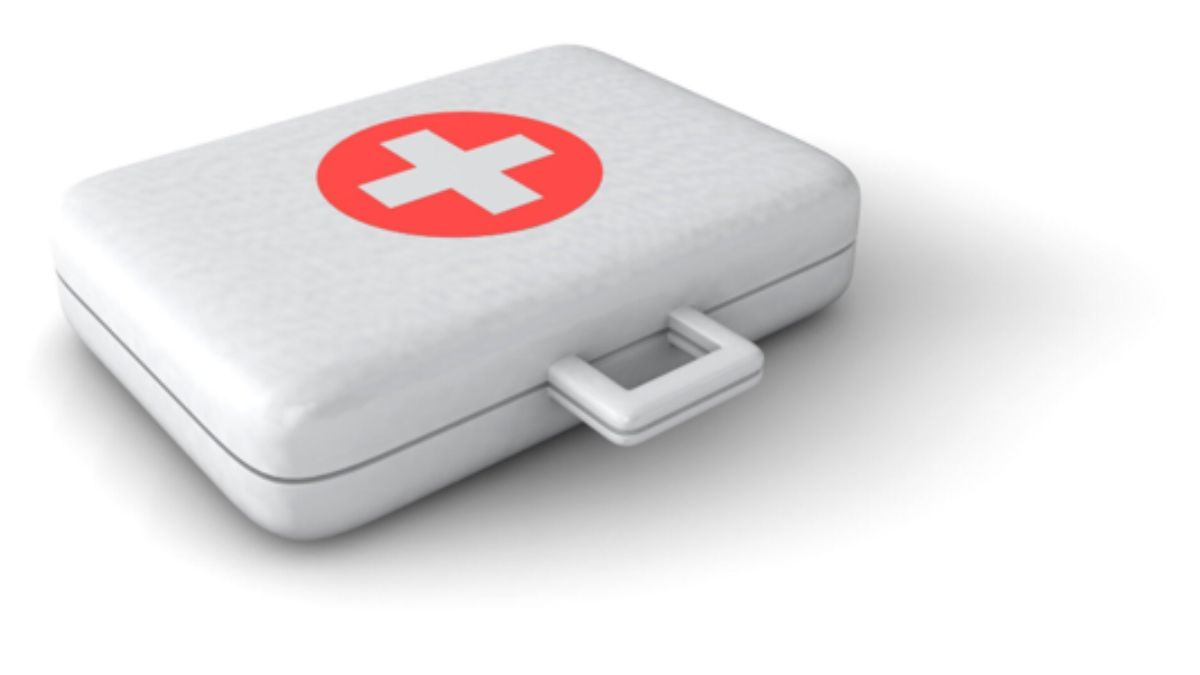HEALTH
Nursing Leadership: Developing Skills for Management Roles

In the dynamic field of healthcare, effective leadership is essential for delivering high-quality patient care and managing complex healthcare systems. Nurses, often the backbone of patient care, are increasingly stepping into leadership and management roles. Developing the necessary skills for these positions is crucial for nurses who aspire to lead teams, manage departments, or even oversee entire healthcare facilities. This article explores the key competencies required for nursing leadership and the benefits of advanced education in fostering these skills.
The Evolving Role of Nursing Leaders
Nursing leadership has evolved significantly over the years. Traditionally, nurses were primarily seen as caregivers and advocates for patients. However, the expanding scope of the healthcare system, coupled with increasing administrative demands, has broadened the role of nurses. Today, nurse leaders are expected to manage teams, coordinate patient care across multiple disciplines, oversee budgets, and implement policies and procedures that ensure the efficient operation of healthcare facilities.
These expanded responsibilities require a combination of clinical expertise and strong leadership skills. Nurse leaders must be adept at decision-making, problem-solving, and strategic planning. They also need to be effective communicators, capable of guiding and motivating their teams, resolving conflicts, and fostering a collaborative work environment.
Key Skills for Nursing Leadership
- Clinical Expertise: A strong foundation in clinical knowledge is essential for any nurse leader. This expertise allows leaders to make informed decisions about patient care, set clinical standards, and mentor other nurses. It also provides credibility, which is crucial for earning the trust and respect of colleagues and subordinates.
- Communication Skills: Effective communication is a cornerstone of leadership. Nurse leaders must communicate clearly and compassionately with patients, families, and healthcare teams. This includes not only verbal communication but also active listening and non-verbal cues. Good communication helps prevent misunderstandings, build trust, and ensure that all team members are aligned with organizational goals.
- Emotional Intelligence: Emotional intelligence, the ability to understand and manage one’s own emotions and those of others, is critical in nursing leadership. This skill helps leaders navigate the emotional complexities of patient care, manage stress, and maintain a positive work environment. It also enables leaders to handle conflicts effectively and build strong relationships with team members.
- Financial Acumen: Understanding the financial aspects of healthcare, such as budgeting, resource allocation, and cost management, is increasingly important for nurse leaders. This knowledge allows them to make decisions that balance patient care with fiscal responsibility, ensuring the sustainability of healthcare services.
- Strategic Thinking: Nurse leaders must be capable of strategic thinking, which involves planning for the future, setting long-term goals, and anticipating challenges. This skill is essential for leading organizations through change, whether it’s implementing new technologies, adapting to healthcare reforms, or improving patient care models.
The Role of Advanced Education
While on-the-job experience is invaluable, formal education is equally important for developing leadership skills. Advanced degrees and specialized training can provide nurses with the knowledge and credentials needed to move into management roles. Online Healthcare Programs, in particular, offer a flexible and accessible option for nurses seeking to enhance their skills while continuing to work.
These programs often cover essential topics such as healthcare management, leadership theory, ethics, and organizational behavior. They also provide opportunities for practical application through case studies, projects, and internships. By completing an advanced degree, nurses can gain a competitive edge in the job market and position themselves for leadership opportunities.
Conclusion
Nursing leadership is a challenging but rewarding career path that requires a blend of clinical expertise, communication skills, emotional intelligence, financial acumen, and strategic thinking. As the healthcare landscape continues to evolve, the demand for skilled nurse leaders will only grow. Advanced education plays a crucial role in preparing nurses for these roles by providing the necessary knowledge and skills. By investing in their professional development, nurses can not only enhance their careers but also contribute to the overall improvement of healthcare delivery.
HEALTH
What You’ll Learn in CPR & First Aid Training Courses

Have you ever wondered what you would do if someone collapsed in front of you or had a serious injury? It’s a scary thought, but being prepared makes a huge difference. CPR & First Aid training courses teach you exactly how to handle emergencies like this.
In this blog post, you’ll discover what skills you’ll learn, how these courses work, and why this training is so important. By the end, you’ll feel ready to take the next step toward saving lives.
Learn to Act Fast in Emergencies
One of the first things you’ll learn in CPR & First Aid training is how to stay calm when an emergency happens. These courses show you how to think clearly and take action when seconds matter. Whether someone has trouble breathing, is bleeding badly, or has passed out, knowing what to do right away can help save their life.
You’ll learn how to assess the situation, check for danger, and start helping before professionals arrive. These steps can make all the difference.
Discover the Power of CPR
CPR stands for Cardiopulmonary Resuscitation. It sounds complicated, but you’ll learn that it’s easy to do. CPR is a method used when a person’s heart stops beating.
You’ll find out how to push down on the chest in a steady rhythm and how to give breaths if needed. These actions help move oxygen through the body until help comes. CPR is a lifesaving skill, and anyone can do it once they are trained.
Understand How to Use an AED
An AED is a device that gives a shock to the heart to help it start beating again. During your training, you’ll learn how to use it step by step. The machine talks to you and tells you what to do, which makes it easier.
You’ll also learn where to find AEDs in public places and why quick use is so important. Using an AED right away can increase a person’s chances of survival, and you’ll be ready to do just that.
Learn to Handle Common Injuries
Every day, accidents happen all the time. Someone might cut themselves, fall, or have a burn. In CPR & First Aid training, you’ll learn how to help with these injuries.
You’ll find out how to clean and cover a wound, treat a burn, or wrap a sprain. You’ll also learn what not to do so you don’t make things worse. Knowing how to give the right care right away helps someone feel better and heal faster.
Be Ready for Choking and Allergic Reactions
Choking is another emergency that can happen suddenly. These courses show you how to spot the signs and what to do to help. You’ll learn how to perform back blows and the Heimlich method.
Allergic reactions can also be dangerous. You’ll learn how to use an epinephrine auto-injector and how to help the person stay safe until help comes. These are real situations that anyone could face, and now you’ll know what to do.
If you’re curious about even more topics covered in these lessons, get more info by visiting your local training center or health organization.
First Aid Training: The Power to Save Lives
Taking CPR & First Aid training courses gives you the skills to help others during some of life’s scariest moments. You don’t need to be a doctor or nurse. Just knowing what to do during an emergency can save lives.
These courses help prepare you for real-life emergencies in a simple, hands-on way. Did this guide help you? Browse the rest of this section for more advice on a variety of topics.
HEALTH
The Role of Community in Veteran Health and Wellness

Did you know that a strong community connection can play a transformative role in the health and wellness of our veterans? In recent years, studies have shown that social integration significantly boosts mental health and overall well-being, especially for those who have served in the military.
Veterans often face unique challenges, and having a supportive community can be a crucial factor in their recovery and sustained health. This article explores the vital importance of a community in veteran health and how senior living options can enhance their overall quality of life. Keep on reading.
The Importance of Community in Veteran Well-Being
For veterans transitioning back into civilian life, the shift can often feel overwhelming. Many struggle with feelings of isolation and alienation from those who haven’t shared similar experiences. This is where a sense of community becomes essential.
A supportive network helps veterans feel connected and valued. In senior living environments, fostering a community spirit can lead to:
A Sense of Belonging
Veterans often feel better when they know others share their past. Living with peers who understand can make them feel safe. This helps build real friendships and trust.
Improved Mental Health
Being around others can ease sad or anxious thoughts. Talking, laughing, and sharing stories helps the mind. These small moments lift spirits each day.
Physical Health Benefits
Group activities like walks or games keep the body moving. Staying active with others can be more fun. It helps veterans stay strong and feel better.
Easy Access to Resources
A strong group can guide members to helpful tools. It’s easier to ask for help when others understand. Veterans find what they need without feeling lost.
How Senior Living Enhances Social Connections
Many places where seniors live are made to feel like a strong community. Some have special programs just for veterans. These programs help them feel supported and connected with others.
There are group trips, fitness classes, and other fun things planned for veterans. These keep them busy, happy, and moving. It also helps them meet people who understand them.
Some places also give extra care for mental health. Veterans can talk to people who know about things like PTSD. Being around others with similar stories can help them feel less alone.
Building Supportive Care Frameworks
Supportive care is more than just meeting physical needs; it’s about holistic wellness that encompasses emotional, mental, and social aspects. Within a community-focused approach, veterans can tap into:
- Peer support groups
- Integrative wellness programs
- Access to healthcare
The Unique Proposition of Community-Focused Senior Living
Choosing a senior living arrangement that emphasizes community focus provides veterans with the unique opportunity to enhance their quality of life. Not only can they maintain independence, but they can also engage in a variety of activities designed to foster relationships and an active lifestyle.
Facilities that prioritize a community focus in veteran health often include programming tailored specifically for them. They offer more than just a place to live. Veteran programs for seniors create a supportive atmosphere promoting veteran wellness through engagement, shared experiences, and friendship.
Invest in Your Health and Well-Being Today!
If you or a loved one is a veteran looking for a welcoming community, consider exploring options that offer comprehensive support and a vibrant community in veteran life. With a focus on wellness and connection, you can conquer the challenges of daily living and thrive among peers who understand and appreciate your journey. Your health and well-being deserve a community that cares.
For more related topics, check out the rest of our blog!
HEALTH
How Cannabis Extracts are Redefining Medical Applications

How can one plant help with so many health needs?
Cannabis extracts are now used in new ways to treat different medical problems. These extracts come in forms like oils, drops, and pills. Many people use them to feel better without strong drugs.
Doctors and patients are starting to see the value of these products. They are easy to use and made with care. If you’re looking for new ways to feel better, cannabis extracts might be worth a try. Want to learn more about how they work and how they can help? Keep reading!
Managing Pain
Many people deal with pain each day, and finding safe ways to manage it matters. Cannabis extracts are giving new hope by offering support for pain that doesn’t always respond to common treatments.
These extracts may help with joint pain, nerve pain, and pain from injuries. They work by interacting with the body’s systems in a natural way. Unlike some strong drugs, they are less likely to cause harm with long use.
Doctors are now looking at these extracts as a helpful tool for people with ongoing pain. As more studies are done, more is learned about their benefits. To stay informed about growing options for care, reading articles like these can help guide smart choices.
Helping with Sleep
Trouble falling asleep or staying asleep can affect daily life. Cannabis extracts are now being used to support better sleep by helping the body relax at night. Some people say they fall asleep faster and wake up less often.
These extracts may work by calming certain parts of the brain that stay active during rest. Many users prefer them over common sleep aids because they feel more natural. They are often taken as drops or capsules before bedtime.
People who have tried other sleep methods without success are now turning to this option. As more is learned, cannabis extracts may become a trusted part of nightly routines. For those hoping to wake up feeling more rested, they could be a step toward better sleep.
Easing Anxiety and Stress
Busy days and constant pressure can lead to feeling overwhelmed. Cannabis extracts are now being used to help ease anxiety and lower stress levels. Some people say they feel calmer and more balanced after using them.
These extracts may work by helping the brain respond better to stress signals. They are often taken in small amounts during the day and may support a more peaceful state of mind in daily life.
Supporting Appetite and Nausea Relief
Feeling sick or not wanting to eat can make recovery harder. Cannabis extracts are now being used to help reduce nausea and improve appetite. This can be helpful for people going through treatments that make eating difficult.
The extracts may work by calming the stomach and making food seem more appealing. They are often taken in small doses and come in easy-to-use forms. For some, they offer simple support during times of low appetite or queasiness.
Exploring New Paths with Cannabis Extracts
Cannabis extracts are opening new doors in medical care, offering support in ways that were once hard to find. From easing daily struggles to helping with serious health challenges, these extracts are changing how treatment can look and feel.
Their growing use shows how natural options are becoming part of trusted care plans. As research continues, more people may find comfort and balance through these products. Exploring new paths with cannabis extracts in modern care shows how far healing can go.
Did you find this article helpful? Visit our website for more awesome content like this.
-

 HEALTH1 year ago
HEALTH1 year agoIntegrating Semaglutide into Your Weight Loss Plan: A Practical Guide
-

 HOME IMPROVEMENT1 year ago
HOME IMPROVEMENT1 year agoHow to Choose the Perfect Neutral Area Rug for Every Room
-

 LAW1 year ago
LAW1 year agoPost-Divorce Considerations in California: Modifications and Long-Term Planning
-

 LAW1 year ago
LAW1 year agoTeenage Drivers and Car Accidents in California: Risks and Parental Liability
-

 CONSTRUCTION1 year ago
CONSTRUCTION1 year agoConstruction Site Safety Regulations in New York and Your Rights as a Worker
-

 FINANCE1 year ago
FINANCE1 year agoDigital Asset Management in Florida Estate Planning
-

 LAW1 year ago
LAW1 year agoKentucky’s School Football: Concussions, Injuries, and Legal Options
-

 LAW1 year ago
LAW1 year agoGang Activity and Criminal Charges in CA: Protecting Your Rights
